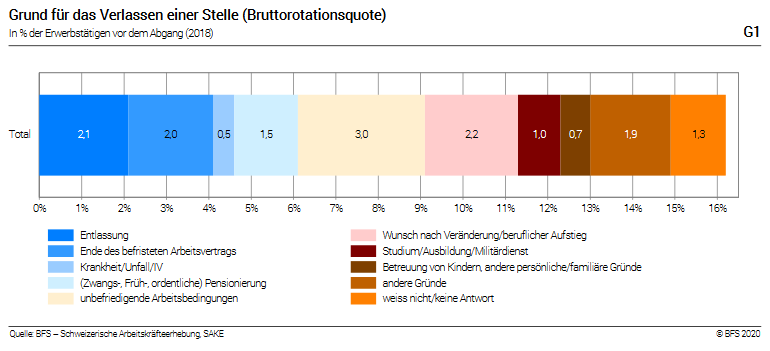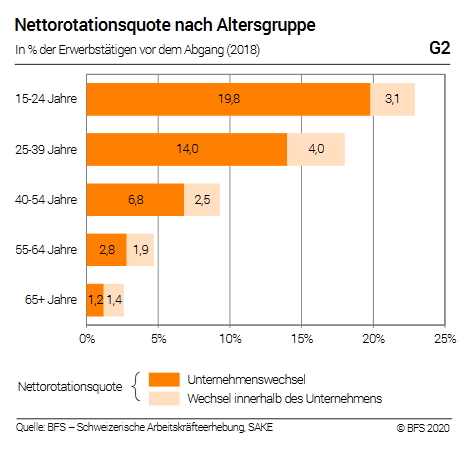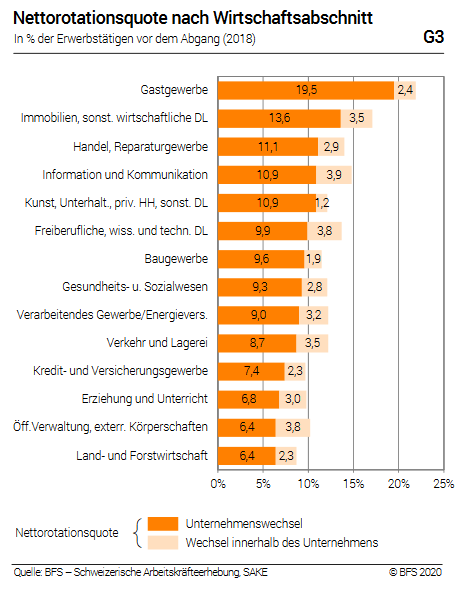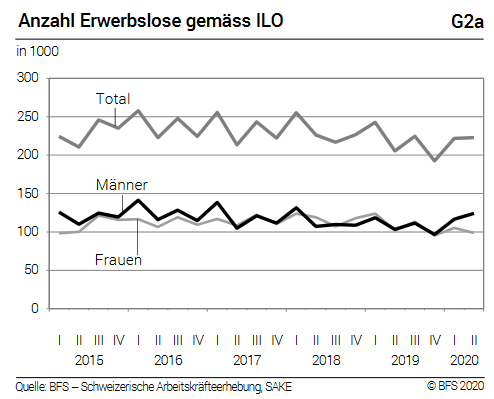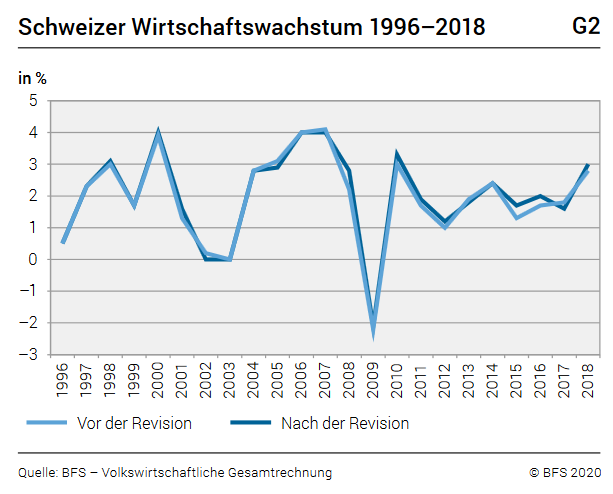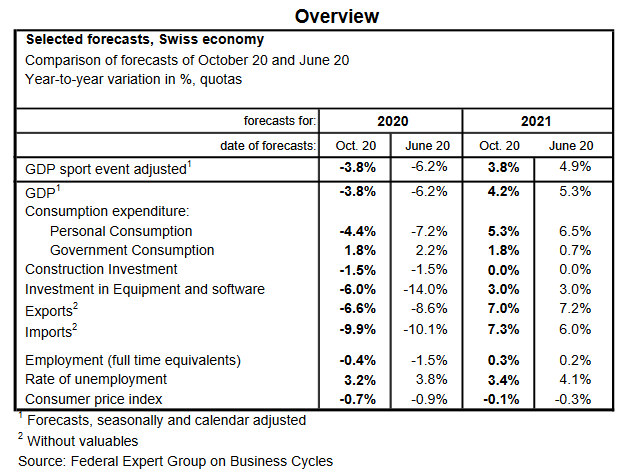22.10.2020 – In Switzerland, 19.2% of people who pursued a professional activity left their job between 2018 and 2019. Mobility is particularly strong among young people, people with a fixed-term contract or working in the hotel and restaurant sector. A change of job led to a higher work-time percentage for 1 in 5 people and a wage increase for 1 full-time employee in 3. These are some of the results from the “Occupational mobility in Switzerland 2019” publication from the Federal Statistical Office (FSO). Translated from German: Of those employed in 2018, one in five left their job within a year (19.2%). 9.8% have changed companies, 2.9% have taken a different position within the same company, 1.8% have become unemployed according to the International Labor
Topics:
Swiss Statistics considers the following as important: 2.) Swiss Statistics - Press Releases, 2) Swiss and European Macro, Featured, newsletter
This could be interesting, too:
Nachrichten Ticker - www.finanzen.ch writes Die Performance der Kryptowährungen in KW 9: Das hat sich bei Bitcoin, Ether & Co. getan
Nachrichten Ticker - www.finanzen.ch writes Wer verbirgt sich hinter der Ethereum-Technologie?
Martin Hartmann writes Eine Analyse nach den Lehren von Milton Friedman
Marc Chandler writes March 2025 Monthly
22.10.2020 – In Switzerland, 19.2% of people who pursued a professional activity left their job between 2018 and 2019. Mobility is particularly strong among young people, people with a fixed-term contract or working in the hotel and restaurant sector. A change of job led to a higher work-time percentage for 1 in 5 people and a wage increase for 1 full-time employee in 3. These are some of the results from the “Occupational mobility in Switzerland 2019” publication from the Federal Statistical Office (FSO).
Translated from German:
| Of those employed in 2018, one in five left their job within a year (19.2%). 9.8% have changed companies, 2.9% have taken a different position within the same company, 1.8% have become unemployed according to the International Labor Office (ILO) and 4.6% have left working life. Unsatisfactory working conditions as the main reason for changing jobs The most important reasons for changing jobs in 2019, in order of frequency, were unsatisfactory working conditions (3.0% of the workforce in 2018), the desire to change (2.2%), layoffs (2.1%), the End of a fixed-term employment contract (2.0%), other reasons (1.9%), retirement (regular, early, compulsory retirement; 1.5%) as well as childcare and other personal or family reasons (0.7%). |
Reason for leaving a position (gross rotation rate) |
| Job changes become rarer with increasing age and seniority Almost every fourth employed person aged 15 to 24 changed jobs between 2018 and 2019 (22.9%). The net rotation rate then gradually decreases with age to 4.7% for 55 to 64 year olds. The longer someone occupies a position, the lower the likelihood of a change. For people who have been with the company for one or two years, the net rotation rate is 18.6%, for people with seniority of seven to eight years it is 11.1%. More job changes among employees in precarious circumstances Compared to the self-employed (4.4%), employees are very mobile at work (13.9%), especially those with low hourly wages and fixed-term contracts. Most job changes can be observed in the business sectors “hospitality” and “real estate, other economic services”. |
Net rotation rate by age group |
| Change of job and working conditions Between 2018 and 2019, 37.9% of the workforce who changed business changed their employment rate. 21.2% increased their workload, 16.7% reduced it. In the same period, 46.6% of full-time employees changed their wages by at least 10%. 35.9% earned more, 10.7% less. |
Net rotation rate by economic segment |
Tags: Featured,newsletter

